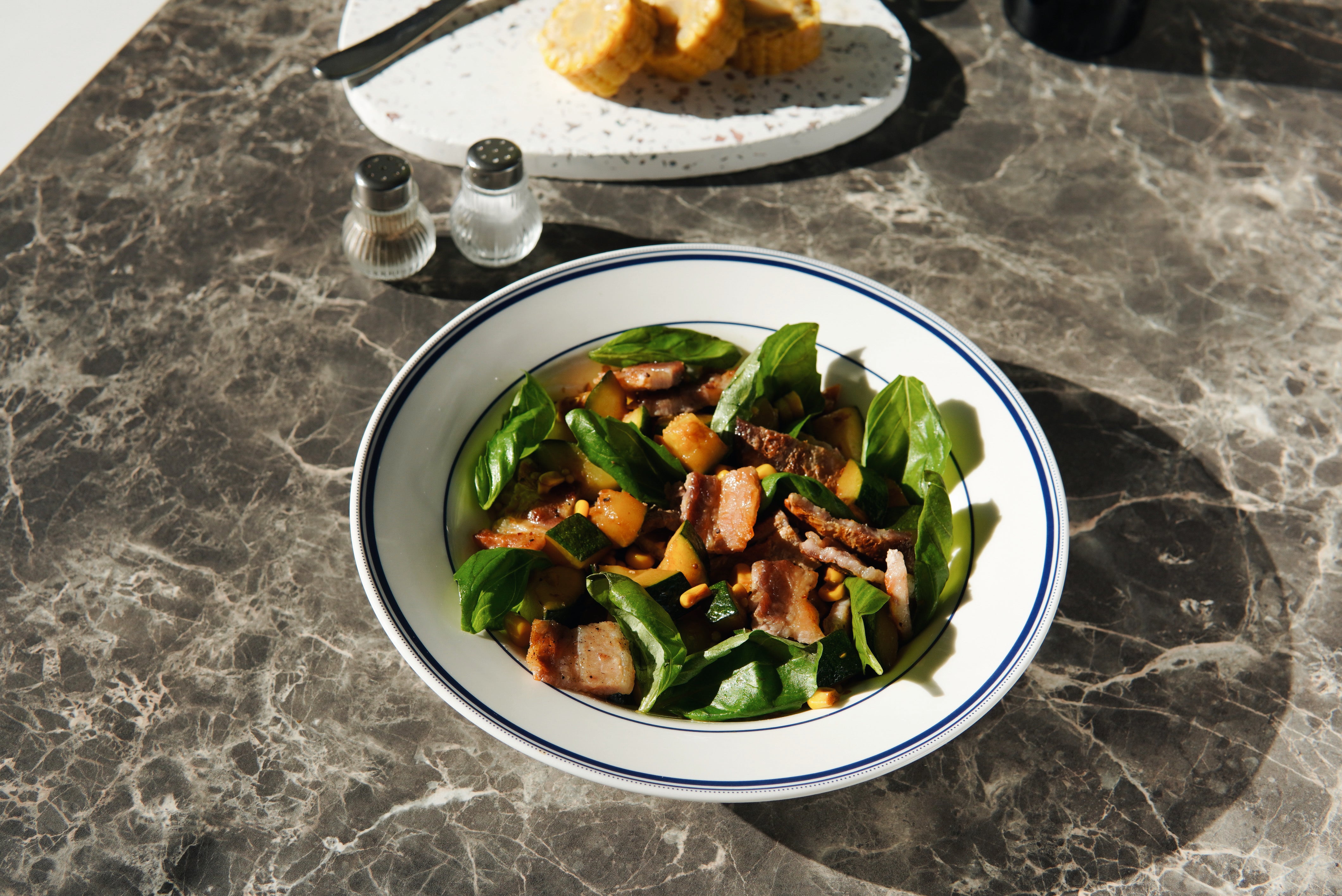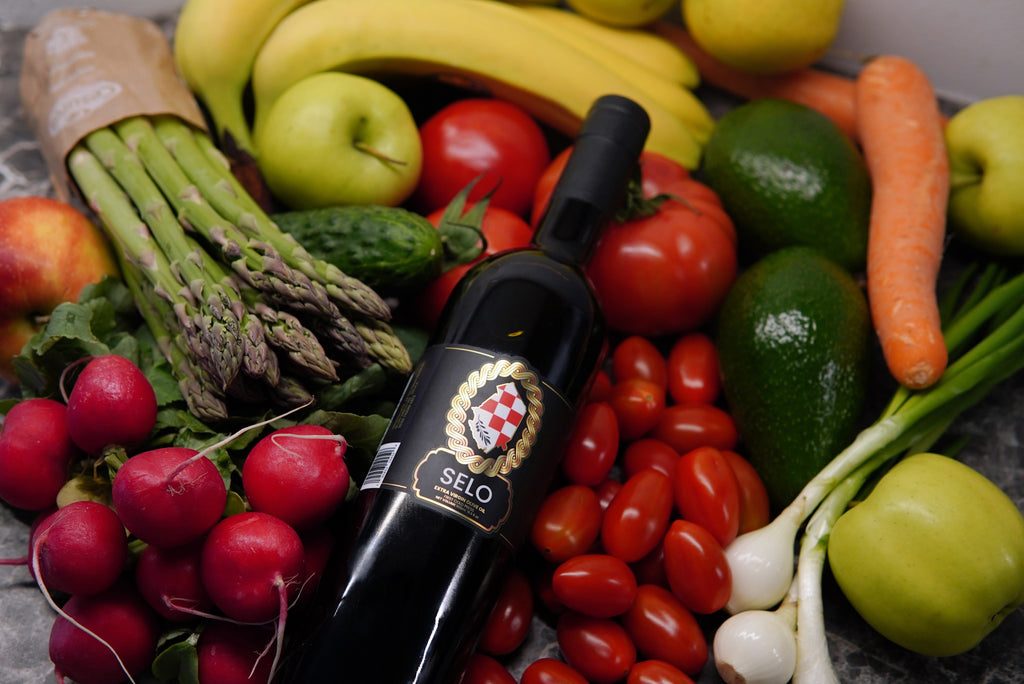Oh, the humble salad - a delight to both the palate and the waistline. But have you ever thought, what makes or breaks a salad? Well, it's not just about quality ingredients but also about the right dressing. And when we talk about dressing, a star player is none other than olive oil.
Choosing the right olive oil can be akin to selecting the perfect wine for your meal. It's not merely about pouring some oil over your greens. It's an art that requires understanding of its different flavor intensities - delicate, medium, and robust - each carrying its unique charm.
But wait, there's more! The origin of olive oil - the region and olives used in its production - significantly impacts its taste. Just like grapes for wine, olives for oil hold the essence of their terroir. So buckle up as we embark on an exciting journey to unravel the secrets of choosing the perfect olive oil for your salad.
Choosing an Olive Oil for Salad
There's a world of flavor in your salad bowl. Your choice of ingredients sets the stage, but the olive oil you choose can make or break the show. So, how do you choose the best olive oil for salad?
The first step is to look at your salad itself. Consider the ingredients you've chosen. Are they mild and understated, like butter lettuce and cucumbers? Or are they bold and assertive, like arugula and red onions?
Your next decision is whether to complement or contrast these flavors with your olive oil. Complementary olive oils enhance existing flavors, while contrasting ones introduce an exciting new taste element.
Now, let's dive into flavor intensities. Olive oils fall into three categories:
- Delicate
- Medium
- Robust
Delicate olive oils are light and subtle, perfect for salads with mild flavors. Medium olive oils have more personality and pair well with a variety of ingredients, from spinach to cherry tomatoes. Robust olive oils stand their ground with strong flavors like blue cheese or bitter greens.
And remember, it's not just about taste; it's about health too! Consuming olive oil daily has numerous health benefits. So why not make your salad both delicious and nutritious?

Complementary Olive Oil for Salad
Imagine the delicate dance of flavors in a well-crafted fruit salad or a plate of mild greens. Now, imagine elevating those flavors to an even higher level. That's where the magic of complementary olive oil for salad comes in.
A delicate olive oil, with its soft and subtle flavor profile, is your perfect partner when making these types of salads. It gently enhances the natural tastes without overpowering them, creating a harmony of flavors rather than a clash.
Consider pairing a delicate olive oil with a crisp apple and walnut salad. The lightness of the oil marries well with the sweetness of the apple and the crunchiness of the walnut, taking this simple dish to new gastronomic heights.
Or perhaps you're crafting a salad with mild greens like butter lettuce or baby spinach. In this case, a gentle drizzle of delicate olive oil can enhance their mild flavors instead of drowning them in an ocean of taste.
The secret lies in understanding that sometimes less is more. Let your ingredients shine and merely accentuate them with your choice of olive oil. Experiment with different combinations to discover your perfect pairings.
Remember, the goal is to create a symphony where each flavor plays its part without stealing the spotlight.
Contrasting Olive Oil for Salad
Opposites attract, they say, and this couldn't be truer when it comes to pairing robust olive oil with your salad. Imagine a battle of flavors in your mouth, where each one holds its own and yet harmonizes beautifully with the other. That's what a contrasting olive oil for salad does!
When you've got bitter greens like arugula or radicchio, or perhaps a topping with a strong flavor profile like blue cheese or sun-dried tomatoes, using a robust olive oil can be an exhilarating experience. The boldness of these ingredients won't get lost but rather will be enhanced by the equally potent nature of the olive oil.
The dance of flavors between the strong components of your salad and the powerful essence of the robust olive oil is not meant to be missed! So, next time you're making a salad, don't shy away from experimenting with a contrasting olive oil – it might just become your new favorite combination!
Exploring Different Types of Olive Oil
Olive oil, an elixir of the gods if you will, comes in various types. Each with a unique personality, ready to add a certain je ne sais quoi to your salad bowl. The key lies in understanding their distinctions and knowing when to invite them to your salad party.
Extra-virgin olive oil, often referred to as EVOO, is the superstar of the olive oil show. Cold-pressed from the finest olives without heat or chemicals, it boasts a superior taste and aroma. Its richness makes it ideal for salads where the oil can be tasted prominently. For more insights on what makes extra virgin olive oil special, read more.
Then there's cooking olive oil, typically a blend of cold-pressed and processed oils. It lacks the robust flavor of EVOO but still brings its own charm to the table. This type is best used when you want the olive oil's health benefits without overpowering other ingredients' flavors.
Finally, we have dipping olive oil. This type is typically infused with herbs or spices and offers bold flavors specifically designed for dipping bread rather than cooking or drizzling over salads.
Remember, there is no 'one-size-fits-all' in the world of olive oils. The best choice depends on your specific salad preparation and personal preference. So go ahead and date around! Try different types and find your match made in salad heaven.

Enhancing Your Salad with Flavored Olive Oil
Unleash the gastronomic adventurer within you and delve into the world of flavored olive oil for salad. Infused olive oils are a treasure trove of flavors waiting to be discovered. They range from citrusy notes of lemon and orange, to aromatic herbs like rosemary and basil, even exotic infusions like truffle or chili.
Imagine this: a light drizzle of rosemary-infused olive oil on your baby spinach salad, lending a subtle aroma and evoking the essence of Mediterranean cuisine. Or perhaps an orange-infused olive oil, its refreshing zest complementing a hearty fennel and arugula salad. The possibilities are endless!
So, how do you select the perfect flavored olive oil? It's all about understanding your salad ingredients and creating harmony or exciting contrasts. Consider these steps:
- Identify the dominant flavors in your salad.
- Match them with a complementary or contrasting infused olive oil.
Don't shy away from experimentation! Strawberry-infused olive oil over your goat cheese salad might sound unusual, but could turn out to be an unexpected delight. Remember, there's no one-size-fits-all in flavor combinations; it's all about personal preference.
So take the plunge, explore diverse flavored oils and give your salads a splash of excitement!
Tips for Selecting the Best Olive Oil
Now that we've explored the bountiful world of flavored olive oils, let's take a detour into the realm of how to choose olive oil wisely.
Educate Yourself on Labels and Certifications
Labels can be quite tricky, filled with marketing jargon and terms that seem impressive. Don't be swayed by fancy words like 'pure' or 'light'. Instead, look for labels stating 'extra virgin', which indicates the highest quality and most flavorful olive oil. Seek out certifications such as PDO (Protected Designation of Origin) or PGI (Protected Geographical Indication) which guarantee the product's authenticity and quality.
Seek Advice from an Olive Oil Expert
An olive oil expert can guide you in understanding subtle nuances. This could be a certified taster, a producer, or a knowledgeable merchant who can offer insights and recommendations based on your specific needs and preferences.
Consider Factors like Region, Harvest Date, and Production Methods
Just like wine, olive oil flavor profiles vary depending on the region they come from. Also, fresher is better when it comes to olive oil. The harvest date on the bottle can tell you how fresh it is. Lastly, traditional production methods tend to yield higher quality oils than industrial ones.
Remember, each time you buy olive oil, it's not just about picking up a bottle off the shelf but making an informed choice that will add depth and character to your salads.
Making Your Own Salad Dressing
Olive oil for dressing is not just a kitchen staple, but a secret weapon in the culinary world. It forms the base of numerous homemade dressings, adding a silky texture and a rich, savory flavor. The magic begins when you start exploring various flavor combinations and ratios.
A typical vinaigrette recipe suggests a ratio of 6:2:1 – six parts of olive oil to two parts vinegar or acid (like lemon juice) and one part emulsifier (such as Dijon mustard or honey). However, feel free to experiment with these proportions to achieve your desired taste profile.
Now, the question arises - when to use olive oil in dressings? Well, it depends on your salad ingredients. A delicate olive oil pairs well with mild greens or fruit salads. But if you're dealing with bitter greens or strong cheese, go for robust varieties.
Finally, nothing beats fresh salad dressing made right before serving. So get your whisk ready and let's enhance those salads!

Perfecting Your Salad with the Right Olive Oil: A Flavorful Finale
So, we've navigated the world of olive oil together and learned a thing or two along the way. The right olive oil can make all the difference in your salad, transforming it from simple to sublime. Whether it's a delicate touch for a fruit salad or a robust statement for arugula and blue cheese, each choice adds its unique character.
But remember, there's no one-size-fits-all here. Your taste buds are the ultimate guide. So, go forth! Experiment with different oils, play with flavors, and see what wondrous combinations you discover.
One option worth considering is Selo Croatian olive oil. Its low acidity offers a smooth taste that can enhance any salad while also boasting health benefits.
The art of salad-making is an adventure, one where each ingredient has its role to play. With the right olive oil by your side, you're well on your way to creating masterpieces in every bowl. Time to dress up those greens!

